UN Warns About Deteriorating Human Rights Situation In Iran
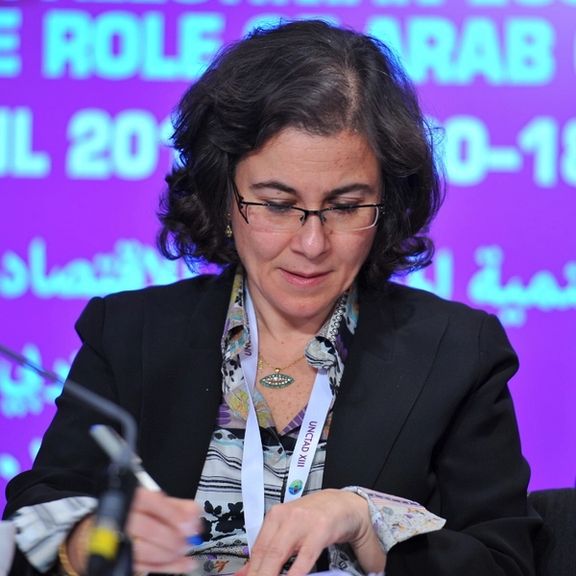
The United Nations has again warned that the human rights situation in Iran has “markedly deteriorated”.

The United Nations has again warned that the human rights situation in Iran has “markedly deteriorated”.
Nada Al-Nashif, UN Deputy Human Rights Chief, presented a report to the Human Rights Council in Geneva on Wednesday saying that the situation in the Islamic Republic aggravated against the backdrop of continuously worsening socio-economic conditions and sanctions.
The report examines developments since the death of 22-year-old Mahsa Amini on September 16which sparked widespread protests throughout the country.
According to the report, there has been a spike in death sentences and executions during the period.
“In 2022, 582 people were executed”, noted the Deputy High Commissioner of UN human rights office OHCHR.
“That is a 75 per cent increase compared to 2021 during which 333 people were reportedly executed. There were three children among those executed in 2022. Of the total number of executions, 256 were for drug-related offences.”
This year alone, that number is already in the hundreds. However, while the UN voices concern for human rights in Iran, it has appointed Iran's UN ambassador Ali Bahraini to the chair of the UN Human Rights Council 2023 Social Forum, drawing global outrage.
Around 20,000 people are estimated to have been detained during the protests, added the report.
“Thousands of children are estimated to have been among those arrested during the protests, while at least 44 children, including 10 girls, were reportedly killed by security forces using lethal force.”
“There have been numerous allegations of torture and ill-treatment of individuals by security forces during arrest and interrogation to extract forced confessions as well as allegations of sexual and gender-based violence committed against women, men and children, especially in detention,” said Al-Nashif.
She also noted that as of March 2, more than 1,000 students, the majority of whom are female, had reportedly been affected by suspected poisoning across 91 schools in 20 provinces.
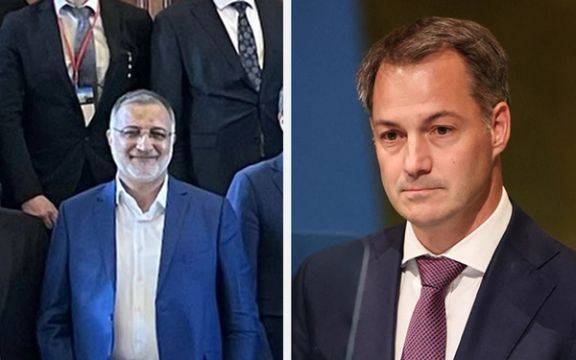
Belgian lawmakers Wednesday questioned PM Alexander De Croo and Foreign Minister Hadja Lahbib for allowing officials from Iran and Russia to attend a mayors' convention in Brussels last week.
Lahbib especially is under scrutiny for having approved visas requests while Iran and Russia are under international sanctions and only three weeks after Belgian NGO worker Olivier Vandecasteele was released from an Iranian jail. He was exchanged in a controversial move with a former Iranian diplomat convicted in a Belgian court of leading a terror plot in Europe and serving a long prison sentence.
De Croo and Lahbib said they didn't want to risk a diplomatic row with Iran close to the release of Vandecasteele and three other Europeans, but lawmakers from opposition as well as coalition parties contest that reasoning.
When in Brussels, the Iranian delegation filmed Belgo-Iranian lawmaker Darya Safai and Iranian opposition members, Belgian national broadcaster RTBF reported.
Safai, who was a prominent activist in Iran before fleeing to Belgium in 2000, said she no longer felt safe in Belgium.
Tehran' mayor, Alireza Zakani, is known as a hardline Iranian politician, who was a member of the Revolutionary Guard’s Basij militia.
The opposition has called for Lahbib's resignation, while extreme-right opposition party Vlaams Belang also asked for De Croo's resignation.
State secretary for external relations of the Brussels government Pascal Smet resigned on Sunday over the all-expenses paid trip.
Reporting by Reuters
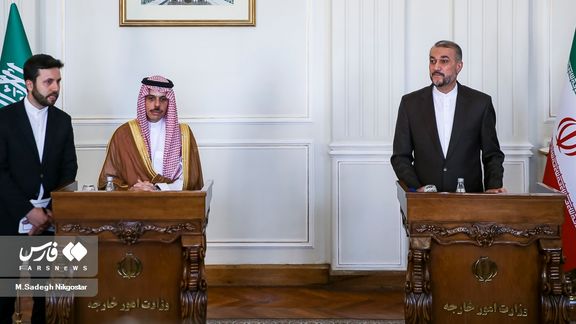
Heated debates in Iran continue about Tehran's ties with Riyadh following an incident during the recent visit of Saudi Foreign Minister Prince Faisal bin Farhan.
The controversy ensued when at the conclusion of talks between bin Farhan and his Iranian counterpart on June 17, the venue of their joint press conference was suddenly changed.
While the Iranian foreign ministry spokesman and the state television insisted that changing the room was "due to a technical problem," Iranian reporters on social media insisted that the Saudi delegation refused to sit in a room where a big portrait of former IRGC Qods Force Commander Qassem Soleimani was posted on the wall.
Foreign policy analyst Diako Hosseini wrote in a tweet: "The Foreign Ministry should have been intelligent enough to predict the Saudis' sensitivities. Now that the ministry was not intelligent enough, the minister should have cancelled the news conference."
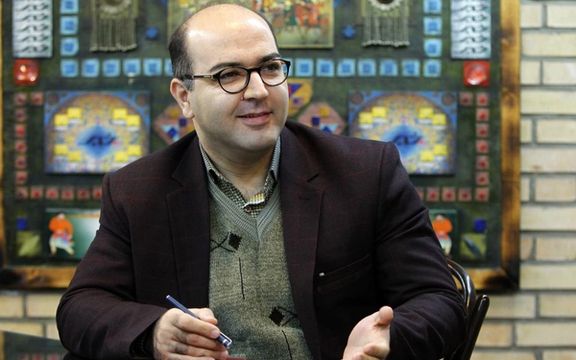
An Iranian commentator in Paris, Mohammad Javad Akbarin tweeted: "In 2019 Soleimani wanted to bring Syrian Leader Bashar Assad to a meeting with Supreme Leader Ali Khamenei to attract media attention. Instead, it was [foreign minister] Zarif's threat to resign that became the day's news. Now, the general's picture has undermined all the achievements of the visit by the Saudi delegation. Dead or alive, Soleimani has always brought about a loss for the country's diplomacy and national interests."
Zarif was apparently caught off guard when Assad showed up in Tehran and was not even invited to the meeting with Khamenei.
At the same time, prominent Saudi columnist Mohammed Alsulami wrote in a series of tweets in both Arabic Persian that "Trust between the two countries is fragile and comments made by some political figures close to Iran shows how difficult is rebuilding mutual trust." He further called on Iranians to avoid using sarcastic language about the Iran-Saudi ties as the Saudis are not interested in “factional rivalries in Iran.”
At the same time, foreign policy analyst Ali Bigdeli told Nameh News website in Tehran that "Not all the problems between Tehran and Riyadh will be solved with a visit to Tehran by bin Farhan. He added that "Some Iranian officials have said that America’s hands will be cut off from the Middle east following the agreement between Iran and Saudi Arabia, but this is not true."

He added: "We still do not have full diplomatic relations with Saudi Arabia. The Iranian ambassador to Riyadh has still not received his credentials from the King." He said in another part of his interview that Saudi promises of investing in Iran may not materialize as long as US sanctions against Iran are in place.
Bigdeli argued that Iran should follow a dynamic policy like Saudi Arabia and maintain healthy ties with both East and West rather than pinning all its hopes on the East.
Meanwhile, moderate news website Entekhab wrote in a commentary that two years after President Ebrahim Raisi declared Iran's policy of expanding ties with China, Iran's "looking east policy" has not been as successful as Saudi Arabia's relations with China.
The website wrote that despite signing a 25-year cooperation agreement with China, Iran's share of trade with Beijing only amounted to half a percent of China's international trade in 2022.
Generally, the total trade volume between Iran and China was less than $16 billion while Saudi Arabia maintained an annual trade of $106 billion with China in 2022, Entekhab maintained.
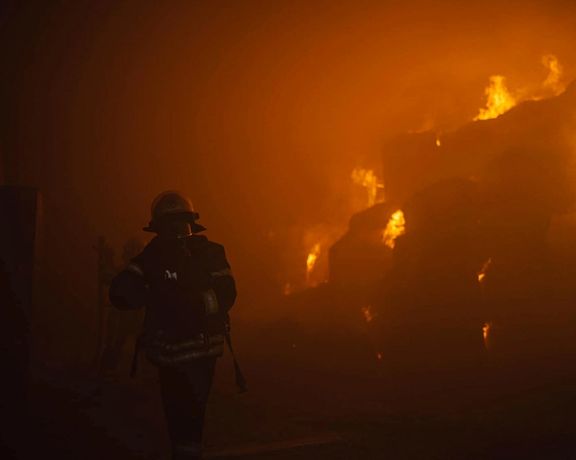
Britain said Wednesday it was investigating allegations that UK universities have cooperated with Iran on drones and other key technologies despite a legal ban.
With Russia using hundreds of Iranian-made suicide drones in Ukraine since October 2022, Prime Minister Rishi Sunak was grilled in parliament about the report by the Jewish Chronicle earlier this month.
“We take all allegations of breaches of export controls seriously and my understanding is that officials in the Department for Business and Trade are currently now investigating the allegations made in the recent press article cited,” Sunak said.
“We will not accept collaborations which compromise our national security,” he said, pointing to stepped-up controls on academic collaborations in technology.
Alicia Kearns MP, chair of the Commons Select Committee on Foreign Affairs had earlier said: “This is a horrifying collaboration, one that I fear risks breaching sanctions in place around sensitive and dual-use technologies.”
According to the Jewish Chronicle, Tehran funded researchers in Britain working on improving drone engines in a project that boosted altitude, speed, and range.
In addition to its ban on military and "dual-use" technologies being exported to Iran, the UK has recently imposed new sanctions against Iranians supplying Russia with kamikaze drones that are being used in Ukraine.
At least 11 British universities, including Cambridge, Cranfield, Glasgow and Imperial College London, were named by the Jewish Chronicle as taking part in studies with potential Iranian military applications.

Hamas Political Chief Ismail Haniyeh met Supreme Leader Ali Khamenei in Tehran shortly after the Palestinian group killed four Israelis.
The killing happened near the West Bank settlement, Eli, in what Hamas called a response to a major Israeli operation in nearby Jenin.
Emergency services reported that four other people were wounded, including a minor, when the gunmen opened fire at a roadside restaurant and a gas station near Eli settlement.
After the attack, Israel said it was beefing up its forces’ presence in the West Bank.
Authorities said the two gunmen belonged to Hamas' armed wing. One was killed by a civilian at the scene and the other by Israeli security forces.
Hamas, which controls the Gaza Strip and has a network of fighters across the West Bank, described the attack as a "heroic" response to Monday's Israeli operation in Jenin and said it may be followed by more actions against Israelis "that will shatter their fragile state and turn the lives of their soldiers and settlers into a nightmare".
Israel blamed Iran for a large-scale military confrontation in early April when Palestinian groups aligned with the Islamic Republic launched hundreds of rockets against Israel from Gaza and Lebanon.
The Iranian regime as a Shiite Muslim political force has limited appeal with Sunni Muslims and its reach is mainly among Shiites in Middle Eastern countries, such as Iraq and Lebanon. However, it directs billions of dollars a year to finance an array of militia forces and their political networks.
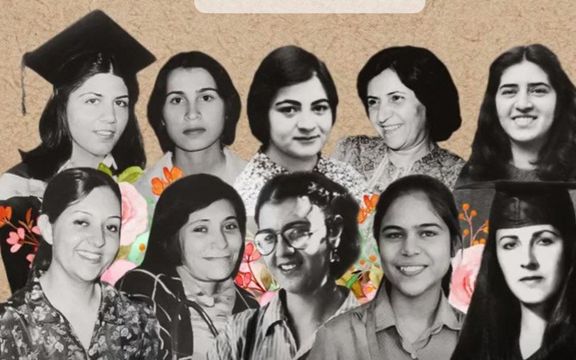
Followers of the Baha’i faith in Iran and abroad have held events to commemorate 10 Baha'i women who were hanged in the city of Shiraz on June 18, 1983.
Two days before the executions, six Baha'i men had been also hanged over trumped up charges. They were among the 22 Baha’is who were sentenced to death out of about 100 Baha'i arrested as part of a crackdown in the southern city of Shiraz in the spring of 1983.
They were convicted for espionage as well as promoting Baha’i faith but in reality their crime was not recanting their beliefs, long hated by the Shia Muslim authorities who had taken over Iran a few years earlier.
The youngest of these women was Mona Mahmoudnejad, a 17-year-old girl whose father was also executed four months earlier, and the oldest of them was 57-year-old Ezzat Janami-Eshraghi, executed along with her daughter Roya that day, and two days after their father Enayatollah Eshraghi.
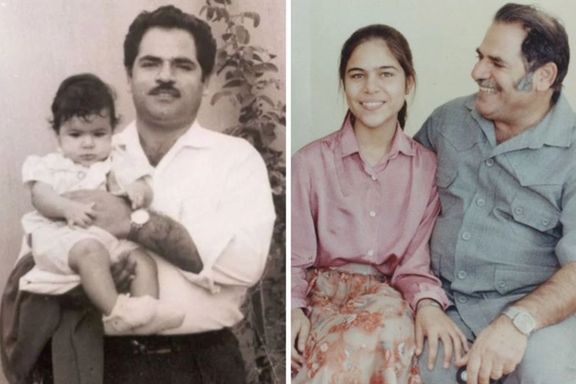
According to Ronald Reagan, the then US president who had pleaded to world leaders to join him to prevent the Iranian government's decision to execute the 22 Baha'is, 113 had already been hanged across Iran since the establishment of the Islamic Republic.
Ruhollah Khomeini, the founder of the Islamic Republic, replied to Reagan’s plea at the time, saying: “If we don't have any other reason that they are American spies, Reagan's support for them is enough."
In the past several days, Iranian expatriate communities in addition to Baha’is and relatives of the victims held events to condemn the Islamic Republic’s executions and the unrelenting persecution of ethnic and religious minorities.
After an event in Oslo, Norwegian-Iranian politician Bijan Gharahkhani told Iran International that the most important issue for Iran today is the unity among people from different ethnicities and religions. He expressed hope for a future Iran in which no one is persecuted for their identities and views.
In Canada, Nahid Mazloum, the other daughter of Ezzat Janami Eshraghi who survived and escaped from the Islamic Republic, told New Canadian Media that “life goes on, but the pain never goes away,” before addressing a gathering of about 650 people from the Baha’i community in Vancouver last Friday, June 16.
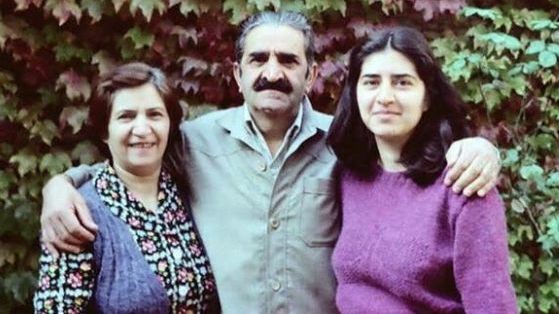
Canadian Prime Minister Justin Trudeau, in his message to the community in April during Ridván — a 12-day festival and the holiest time of the Baha’i calendar — said Canada is deeply concerned about the injustices endured by members of the faith in Iran.
In a letter from inside prison obtained by Iran International, human rights activist Narges Mohammadi said the execution of Baha’i women was “a manifestation, representation, and exposure of the tyrannical, anti-women regime of the Islamic Republic.”
The campaign of terror against Baha’is has been intensifying in recent years, according to the Worldwide Baha’i Community’s statement published in July 2022.
The Baha’i -- who number around 300,000 in Iran -- are the most persecuted religious minority in Iran. They are deprived of government jobs and university education, and the regime periodically instigates attacks on their communities, arrests them, confiscates their businesses and other assets, and demolishes their houses. The intelligence apparatus of the regime usually accuses the arrested Baha’is to having connections with the Baha’i Universal House of Justice in Haifa, Israel, the nine-member supreme ruling body of the Bahaʼi Faith.
Established by Bahaullah in the 19th century, the Baha’i faith initially spread in Iran and parts of the former Ottoman empire and remained mostly confined to Iran and the Ottoman empire until after the death of Bahaullah.
Its roots trace back to the religion of Ali-Mohammad Shirazi, known as the Bab (the gate), the founder of Babism who claimed to be a messenger of God in southern Iran in 1844. The Bab who said God would soon send a new prophet to mankind was executed for heresy against Islam which considers Muhammad as the last prophet of God.
In 1863 Bahaullah, the founder of Baha’i faith who was banished from Iran and settled in Iraq later, announced that he was the prophet promised by the Bab. The leadership of Baha’is fell to his son Abdul-Baha after his death in 1892 near Acre in present day Israel.
Baha’is believe in Muhammad as a prophet of God, and in the Quran as the Word of God while the Shia clergy consider Babism and the Baha’i faith as heretical sects.
The 1979 constitution of the Islamic Republic recognizes only Islam, Christianity, Judaism and Zoroastrianism. Supreme Leader Ali Khamenei has on several occasions called the Baha'i Faith a cult and in a religious fatwa in 2018 forbade contact, including business dealings, with followers of the faith.